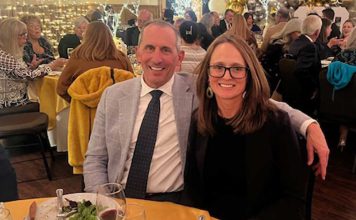”
I’m writing a book. I’ve got the page numbers done.
”
~ Comedian Steven Wright
“I’m writing a book. I’ve got the page numbers done.” ~ Comedian Steven Wright
I’m coming to the end of a 10-week creative writing class, so my mind hasn’t been on local or national politics much lately. Instead, I’ve been busy creating characters, working out interesting yet still believable plots, writing dialogue that rings true, reading short stories and novels by fabulous published authors, and reading and commenting on the work of my classmates.
So, forgive me for not writing about local politics this week. Quite frankly, between the seemingly incessant recorded phone calls urging me to vote this way or that on various propositions, the infuriating television commercials that tell only half – or less – of the truth about any given issue, and the depressing state of national politics, I’ve had about enough for a while. Considering I’m a political and current-events junkie, that’s saying something.
Truth be told, it’s been a pleasure to escape during this election season into fictional worlds of my own creation, or those created by famous writers to whose heights I can only fantasize about attaining. That’s why, on this Election Day, I’m writing about writing.
“Fiction reveals truths that reality obscures.” ~ Author Jessamyn West
I’ve learned that creative writing has a persuasive power that other forms of writing lack. By taking readers into the hearts and minds of people different from themselves, fiction writers can help readers see the world from a new perspective.
Whenever I’ve written columns about controversial topics – from same-sex marriage to stem cell research to police station price tags to an overreacting sheriff’s deputy – I’ve often felt that I’m preaching to the choir and railing against the peanut gallery. In other words, people who already agree with me on that particular topic cheer and applaud, and people who already disagree with me boo and hiss.
But creative writing takes a different approach. It doesn’t use reason and logic, supporting evidence and carefully crafted arguments to make its points. Instead, it takes readers into the minds, lives and worlds of other people. For this creative writing class, I wrote a short story fragment that featured a woman with a gay brother answering her daughter’s questions about why some people hate him. After reading it, a fellow student told me that he’d consider being more understanding about the topic. I was elated. As a voracious reader, I’ve often had the experience of fiction causing me to reconsider a belief; it was exciting to be on the other side of that exchange. The incident showed me the special power of fiction to persuade.
“Writing is easy: All you do is sit staring at a blank sheet of paper until drops of blood form on your forehead.” ~ Journalist Gene Fowler
Another lesson of this creative writing course is that I don’t need to have an overarching theme or great moral in mind when I sit down to write. Starting with nothing but a writing prompt and coming up with a passable short story that took me unexpected places disabused me of that misguided notion. I’ve learned that the process of writing fiction, unlike other writing I’ve done so far in my life, can surprise me and take me in unplanned directions. I’ve learned that those detours are an important, mysterious part of the creative process and one of the pleasures of creative writing.
Finally, an unexpected outcome of this writing class is a renewed respect for the writing program at my daughter’s elementary school. As a result of reviewing fellow students’ work, and having them review my own, I’ve come to appreciate the writer workshop experiences my daughter has had for years at Barrett Elementary School. Here’s the sad reason why: I was surprised at how difficult it was for some of my classmates to give and receive substantive reviews.
After a particularly discouraging episode in which my suggestions angered a classmate, I asked my daughter if her fifth-grade classmates are upset by suggestions in writer workshops. Nope. Thinking that that might be attributed to fifth-grade maturity and experience levels, I asked if they were bothered in the earlier grades. Again, she told me, they were not. She seemed surprised and confused by the idea. There’s undoubtedly much value in the writing skills my daughter and her classmates gain through participating regularly in writer workshops. However, I suspect there’s as much value in improving their ability to give and receive constructive criticism.
And on this Election Day, isn’t that a lesson all politicians could use?













